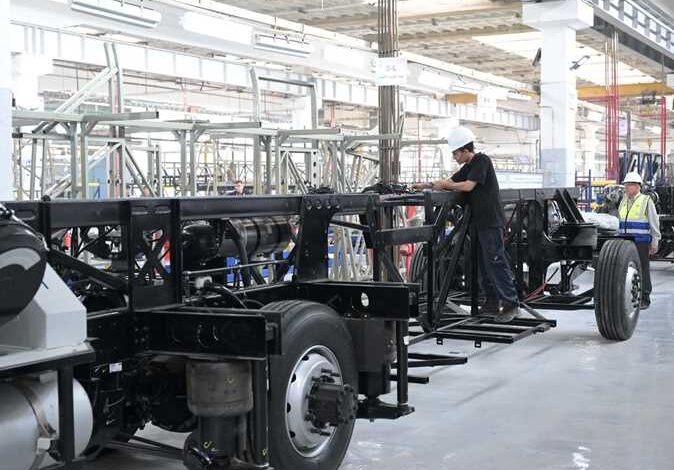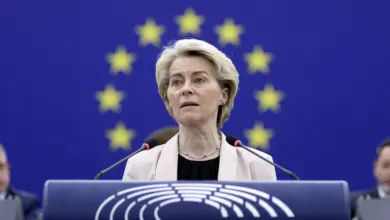
Prime Minister Mostafa Madbouly witnessed the inauguration of the bus manufacturing plant at the Nasr Company for Automobiles, affiliated with the public business sector, on Saturday. The plant had been idle for approximately 15 years.
Khaled Shadeed, Managing Director of the Nasr Company for Automobiles, highlighted the company’s future vision, which aims to utilize all its factories, introduce them into the production cycle, and invest in certain supporting industries to foster growth and deepen industrialization.
The plan includes diversifying products to encompass light transportation, golf carts, and electric tuk-tuks, in addition to optimizing the use of the company’s free zone to facilitate and expedite logistical operations.
A joint stock company was established between the Nasr Company for Automobiles, Singaporean-Taiwanese “Tron Technology,” and Emirati “Euro Transit,” with the goal of manufacturing the first electric mini-bus (24-seater) for urban and tourism services.
The production capacity is expected to reach 300 buses in 2026. Additionally, a production line for electric batteries with a capacity of 600 batteries in 2026 will be established.
Production is scheduled to commence in mid-2024 and is expected to reach 1,500 buses annually by 2027, with a local component rate of 50 percent in the first phase, gradually increasing to 60-70 percent.
The establishment of this company is part of efforts to strengthen partnerships with the private sector and attract more foreign investments.
The Nasr Company for Automobiles was established in 1959 as the first Egyptian automobile manufacturer and played a pivotal role in supporting the national industry.
It is situated on a vast area of approximately 900,000 square meters in the Wadi Huf area of Helwan and consists of 9 factories.
In 2009, a decision was made to liquidate the company. However, in 2017, it was reinstated.
Following its reactivation and the modernization of its production lines, the company is now poised to enter a new phase of advanced production aligned with the goals of sustainable development and Egypt’s future industrial vision.
The company also aims to export its products to multiple Arab countries, contributing to regional economic growth.




